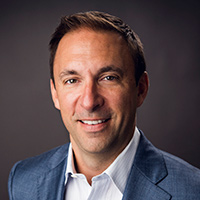5 Questions to Ask Before You Hire a Financial Professional
There are a lot of financial pros out there to choose from. These five questions can help you pick the one who's the best fit for your needs.


Profit and prosper with the best of Kiplinger's advice on investing, taxes, retirement, personal finance and much more. Delivered daily. Enter your email in the box and click Sign Me Up.
You are now subscribed
Your newsletter sign-up was successful
Want to add more newsletters?

Delivered daily
Kiplinger Today
Profit and prosper with the best of Kiplinger's advice on investing, taxes, retirement, personal finance and much more delivered daily. Smart money moves start here.

Sent five days a week
Kiplinger A Step Ahead
Get practical help to make better financial decisions in your everyday life, from spending to savings on top deals.

Delivered daily
Kiplinger Closing Bell
Get today's biggest financial and investing headlines delivered to your inbox every day the U.S. stock market is open.

Sent twice a week
Kiplinger Adviser Intel
Financial pros across the country share best practices and fresh tactics to preserve and grow your wealth.

Delivered weekly
Kiplinger Tax Tips
Trim your federal and state tax bills with practical tax-planning and tax-cutting strategies.

Sent twice a week
Kiplinger Retirement Tips
Your twice-a-week guide to planning and enjoying a financially secure and richly rewarding retirement

Sent bimonthly.
Kiplinger Adviser Angle
Insights for advisers, wealth managers and other financial professionals.

Sent twice a week
Kiplinger Investing Weekly
Your twice-a-week roundup of promising stocks, funds, companies and industries you should consider, ones you should avoid, and why.

Sent weekly for six weeks
Kiplinger Invest for Retirement
Your step-by-step six-part series on how to invest for retirement, from devising a successful strategy to exactly which investments to choose.
You’ve been saving, contributing to your work savings plan and even doing some investing for your retirement, and now you’ve decided you need help.
Or, more help. Or, better help.
Where should you even start? There are countless financial professionals out there, referring to themselves by different titles, listing various licenses and affiliations, and offering grandiose claims for peace of mind in your golden years. How do you possibly narrow it down to an industry leader who’s really right for you?
From just $107.88 $24.99 for Kiplinger Personal Finance
Become a smarter, better informed investor. Subscribe from just $107.88 $24.99, plus get up to 4 Special Issues

Sign up for Kiplinger’s Free Newsletters
Profit and prosper with the best of expert advice on investing, taxes, retirement, personal finance and more - straight to your e-mail.
Profit and prosper with the best of expert advice - straight to your e-mail.
In the end, it will come down to the person you feel you can trust, who welcomes your questions and concerns, and who will be on your side for the long haul. You can get a sense about whether someone is a good fit from an interview – but you have to go into it prepared with the right questions and how the responses will help you meet your goals.
Here are some questions to get you started.
1. Do you work for any specific company, and what investments do you recommend the most?
The answer will tell you how the person operates. Are you dealing with a broker working toward corporate quotas, or are you dealing with an adviser who wants to work for you and toward your goals?
Think of it like a visit to a new doctor. You wouldn’t want to be prescribed something until you had a thorough examination. If you did need treatment, you would want to choose from the best options, not just the ones with which the medical group has made an agreement.
You want to hear advisers say that they are client-centric, not product-centric. And advisers shouldn’t be able to give you any advice until they have completed a full analysis of your situation.
2. What is your investment approach?
One term you may hear is “buy and hold,” which means to invest for the long term. It’s a philosophy that’s been around for a while and might make you feel safe and comfortable. The problem is when it turns to “buy and hope.” That may not be the best prescription for today’s investors. What you’re trying to decipher is whether the adviser just isn’t current with new strategies, or maybe, going back to the doctor metaphor, the adviser is more interested in treating a lot of patients rather than taking the time to figure out what’s best for each.
On the other hand, if the approach is to buy a lot of stocks and trade them back and forth, you’re likely dealing with more of a stockbroker mentality, where commissions are made from each move. Your age should also be a factor here. If you are close to retiring, there may be too much risk involved compared with the risk tolerance you had earlier in your career.
What we recommend is a match approach — not too cold, not too hot, but just right. You want an adviser who doesn’t have just one strategy, but rather a plan customized to meet your goals and needs.
3. What are your fees?
Most consumers don’t know much about the different ways financial professionals are paid: fee-only, fee-based or commission-based.
Again, the structure that’s best for you will depend on where you are in your financial life. If you’re a do-it-yourselfer, a fee-only adviser or stockbroker might work well for your needs. But for most people, a fee-based adviser is the best option. This type of adviser will be looking out for your money full time. Why? The adviser has skin in the game. Your loss is the adviser’s loss, and your gain is their gain.
What you really want to hear is that your adviser can work under whatever structure you need at that particular time. If this were a doctor, your adviser would be your primary care physician and your specialist, with the knowledge and experience to offer you the best scenario.
4. What’s the minimum amount of money you will work with?
Many financial professionals start out as brokers selling products to anyone who needs them. But then, as they gain experience, many realize they don’t want to be pulled off track by lots of small accounts, so they’ll set a minimum on the amount of money they’ll manage. This can be good or bad depending on where you are with your portfolio. But if you’re looking for an adviser who has opted for quality over quantity, a minimum isn’t a bad thing. It means you’re getting someone who’s focused on your needs.
5. How are you different from other advisers?
This question can really put people on the spot. If potential advisers spout a company line about “our firm,” they may be telling you that they track the home office’s goals, not yours.
Advisers you are considering should be able to tell you what makes them special, what sets them apart. For example, do they have a focus on tax planning or preservation or estate planning? You want to get a sense that they care. You want to see passion, that they love what they’re doing and that this is more than a job to them.
Potential advisers should have more than 10 years of experience to have been through recent market trends and fluctuations — and survived. In addition, they should be able to speak to their ability to team up with other professionals — tax and estate attorneys, CPAs, etc. — to be able to offer comprehensive wealth management.
You should interview advisers — but they should also interview you. If they don’t think they can suit your needs, you want them to be willing to say so and give you a referral to an adviser who might be a better fit.
Kim Franke-Folstad contributed to this article.
Profit and prosper with the best of Kiplinger's advice on investing, taxes, retirement, personal finance and much more. Delivered daily. Enter your email in the box and click Sign Me Up.

Patrick W. Ayers is the founder of Ayers Financial Services. A graduate of Virginia Tech, where he earned a degree in finance, he maintains the designation of Registered Financial Consultant and is a member of the Association of Registered Financial Consultants and the International Association of Financial Planning.
Ayers shares his wisdom as weekly host of the “Financial Sanity” radio show and often serves as a guest speaker on radio and television, and he frequently holds informational seminars for corporations, universities, charities and individuals. He and his wife, Tara, and their three children live in Roanoke, Virginia. His interests include his kids’ sports, listening to music and watching Virginia Tech “Hokie” football.
Securities and advisory services are offered through Madison Avenue Securities, LLC (MAS), member FINRA/SIPC, and a Registered Investment Advisor. MAS and Ayers Financial Services are not affiliated entities.
The opinions of Patrick Ayers and Ayers Financial Services are their own.
-
 How Much It Costs to Host a Super Bowl Party in 2026
How Much It Costs to Host a Super Bowl Party in 2026Hosting a Super Bowl party in 2026 could cost you. Here's a breakdown of food, drink and entertainment costs — plus ways to save.
-
 3 Reasons to Use a 5-Year CD As You Approach Retirement
3 Reasons to Use a 5-Year CD As You Approach RetirementA five-year CD can help you reach other milestones as you approach retirement.
-
 Your Adult Kids Are Doing Fine. Is It Time To Spend Some of Their Inheritance?
Your Adult Kids Are Doing Fine. Is It Time To Spend Some of Their Inheritance?If your kids are successful, do they need an inheritance? Ask yourself these four questions before passing down another dollar.
-
 The 4 Estate Planning Documents Every High-Net-Worth Family Needs (Not Just a Will)
The 4 Estate Planning Documents Every High-Net-Worth Family Needs (Not Just a Will)The key to successful estate planning for HNW families isn't just drafting these four documents, but ensuring they're current and immediately accessible.
-
 Love and Legacy: What Couples Rarely Talk About (But Should)
Love and Legacy: What Couples Rarely Talk About (But Should)Couples who talk openly about finances, including estate planning, are more likely to head into retirement joyfully. How can you get the conversation going?
-
 How to Get the Fair Value for Your Shares When You Are in the Minority Vote on a Sale of Substantially All Corporate Assets
How to Get the Fair Value for Your Shares When You Are in the Minority Vote on a Sale of Substantially All Corporate AssetsWhen a sale of substantially all corporate assets is approved by majority vote, shareholders on the losing side of the vote should understand their rights.
-
 How to Add a Pet Trust to Your Estate Plan: Don't Leave Your Best Friend to Chance
How to Add a Pet Trust to Your Estate Plan: Don't Leave Your Best Friend to ChanceAdding a pet trust to your estate plan can ensure your pets are properly looked after when you're no longer able to care for them. This is how to go about it.
-
 Want to Avoid Leaving Chaos in Your Wake? Don't Leave Behind an Outdated Estate Plan
Want to Avoid Leaving Chaos in Your Wake? Don't Leave Behind an Outdated Estate PlanAn outdated or incomplete estate plan could cause confusion for those handling your affairs at a difficult time. This guide highlights what to update and when.
-
 I'm a Financial Adviser: This Is Why I Became an Advocate for Fee-Only Financial Advice
I'm a Financial Adviser: This Is Why I Became an Advocate for Fee-Only Financial AdviceCan financial advisers who earn commissions on product sales give clients the best advice? For one professional, changing track was the clear choice.
-
 I Met With 100-Plus Advisers to Develop This Road Map for Adopting AI
I Met With 100-Plus Advisers to Develop This Road Map for Adopting AIFor financial advisers eager to embrace AI but unsure where to start, this road map will help you integrate the right tools and safeguards into your work.
-
 The Referral Revolution: How to Grow Your Business With Trust
The Referral Revolution: How to Grow Your Business With TrustYou can attract ideal clients by focusing on value and leveraging your current relationships to create a referral-based practice.